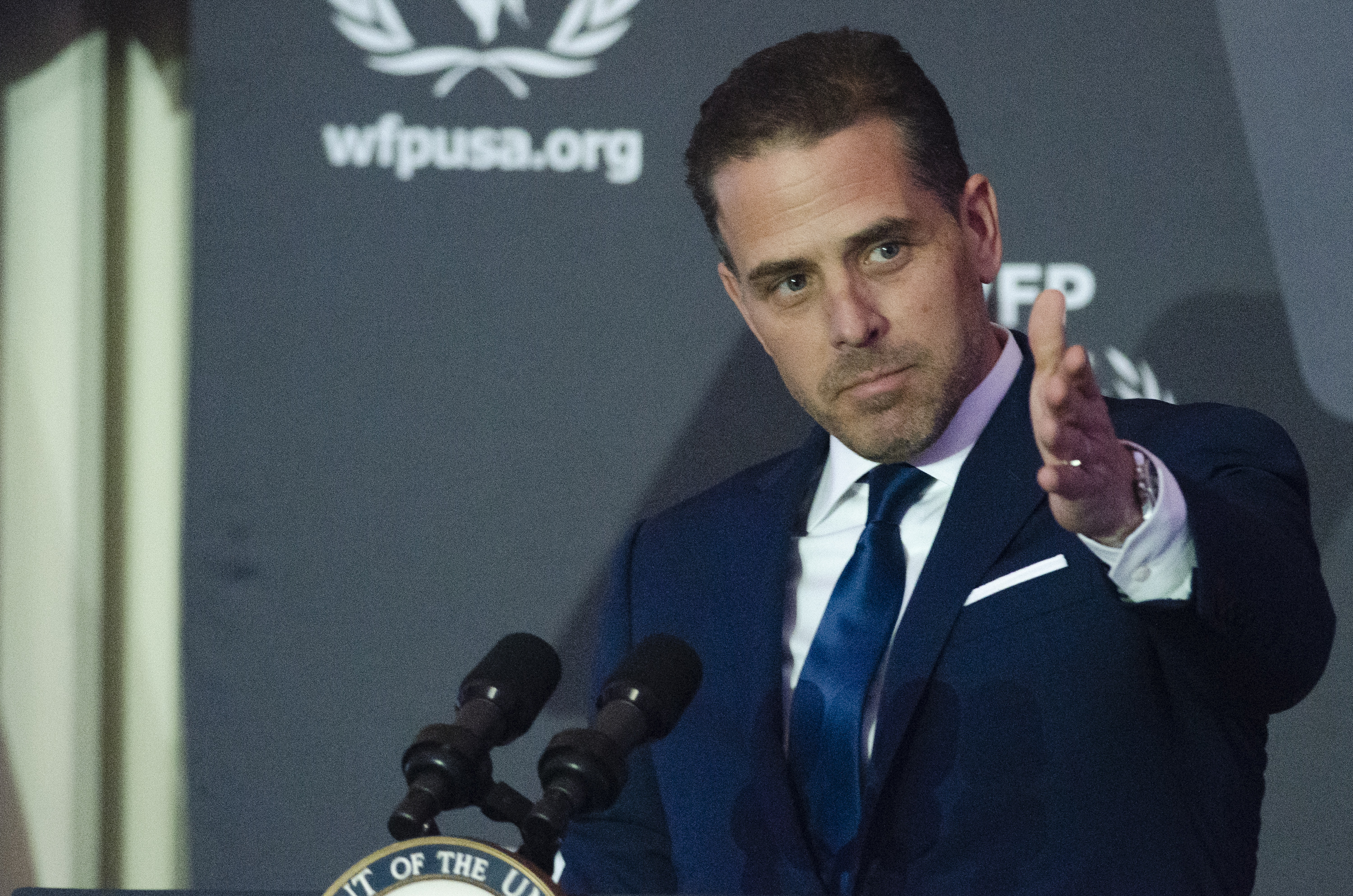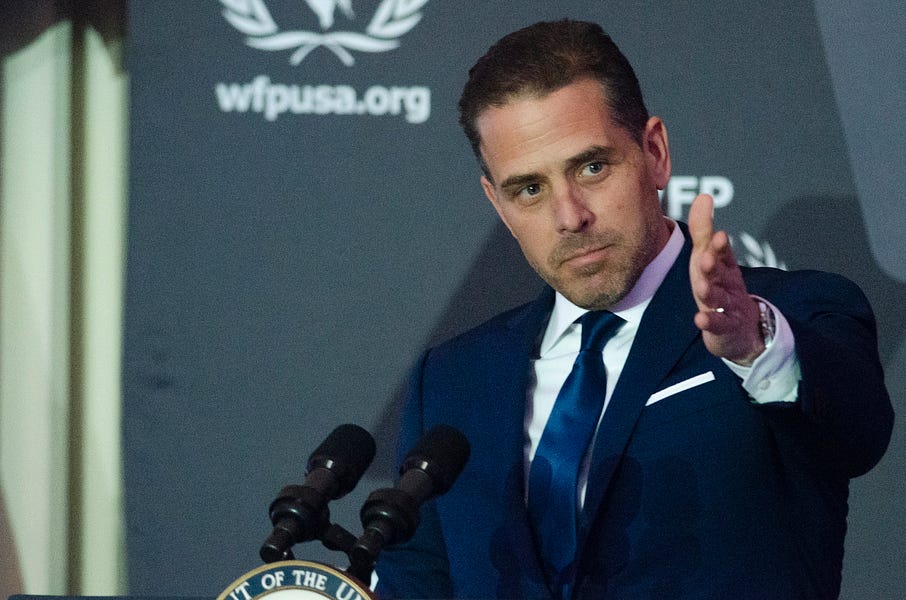Quick Hits: Today’s Top Stories
-
The United States confirmed 56,580 new cases of COVID-19 yesterday per the Johns Hopkins University COVID-19 Dashboard, with 5.6 percent of the 1,011,304 tests reported coming back positive. An additional 873 deaths were attributed to the virus on Wednesday, bringing the pandemic’s American death toll to 216,734.


-
Amy Coney Barrett faced her final day of questioning from the Senate Judiciary Committee on Wednesday. Outside witnesses are set to testify about Barrett later today, leading to an October 22 committee vote on her nomination. According to a Morning Consult poll conducted October 9-11, 48 percent of registered voters support Barrett’s confirmation and 31 percent oppose.
-
Treasury Secretary Steve Mnuchin said on Wednesday that the chances of passing a coronavirus relief bill before November 3 are slim: “I’d say at this point getting something done before the election and executing on that would be difficult, just given where we are.”
-
The Biden campaign announced it raised a record $383 million in September, and has just under half a billion dollars in the bank heading into the final stretch of the election.
-
Due to rising coronavirus infections, French President Emmanuel Macron instituted a minimum four-week curfew in Paris and several other French cities that will begin this Saturday.
-
The president’s youngest son, Barron Trump, tested positive for COVID-19 around the same time as his parents, Melania Trump disclosed on Wednesday. He has since tested negative. “Luckily he is a strong teenager and exhibited no symptoms,” Melania Trump said. “In one way I was glad the three of us went through this at the same time so we could take care of one another and spend time together.”
-
University of Alabama football coach Nick Saban announced Wednesday that he has tested positive for COVID-19. Greg Byrne, Alabama’s athletic director, also tested positive.
A Note Before We Begin
The New York Post reported yesterday that it had obtained emails from the hard drive of Hunter Biden’s computer, including messages with new information about his time at Burisma, the gas company in Ukraine on whose board Biden served. Your Morning Dispatchers read the story shortly after it was published and decided not to include it yesterday’s TMD out of concern about the authenticity of the emails, the accuracy of the reporting and the provenance of the hard drive.
We are covering the story today after it dominated campaign news coverage for the last 24 hours, but our concerns about its veracity have only grown. The story came to the public’s attention due to the efforts of Steve Bannon and Rudy Giuliani, one of whom has been indicted for fraud and both of whom have well-deserved reputations as conspiracy theorists. The individual at the center of the story, a computer shop owner in Delaware, has offered contradictory accounts of his involvement. And disinformation specialists have warned about the presentation of the information at the heart of the controversy. Our own reporting raises additional questions about the claims in the piece.
It’s possible the story as the Post tells it is true. And it’s possible that the emails at the center of the report are authentic. It’s also possible that the information was released as part of the kind of hack-and-leak operations the US intelligence community has warned about. We simply don’t know at this point.
What we do know is this: There’s more coming. Giuliani promised as much. And three weeks ago, a Trump adviser told The Dispatch that the campaign would be releasing new and damaging information related to Hunter Biden as the election approached, including documents suggesting corruption related to China. This morning, the Post has another article featuring documents allegedly obtained from that same hard drive—these ones purportedly related to Hunter Biden’s business in China.
We’ll report it all slowly and carefully.
2016 All Over Again?

On Wednesday morning, the New York Post—a tabloid owned by Rupert Murdoch—published a story it characterized as a bombshell. “Smoking-gun email reveals how Hunter Biden introduced Ukrainian businessman to VP dad,” the headline reads. Most of the article rehashed the charges of Burisma-related corruption over which President Trump’s impeachment battle last year was fought.
But yesterday’s Post story included a few new details: a handful of emails and photographs the paper says it was tipped off to by Steve Bannon in late September and that Trump’s lawyer, Rudy Giuliani, provided to Post reporters on Sunday. The main email depicts Vadym Pozharskyi, a Burisma board advisor, emailing Hunter Biden, then a Burisma board member, in April 2015: “Thank you for inviting me to DC and giving an opportunity to meet your father and spent some time together.” The Dispatch cannot verify the authenticity of the email.
The article provided an opening for the president and his allies in the media to resurrect the (disproven) allegation that Hunter Biden leveraged his connection to the Obama administration to get Viktor Shokin—then a Ukrainian prosecutor tasked with investigating Burisma—ousted from his position. Vice President Biden did pressure the Ukrainian government to replace Shokin, but did so in large part because Shokin was widely viewed as not investigating corruption. U.S. allies and international organizations had long pushed for Shokin’s removal because he was seen as an obstacle to serious investigative work. And the calls for Shokin’s removal were bipartisan here in the United States. Several Republican senators signed a letter in 2016 urging Ukraine to “press ahead with urgent reforms to the Prosecutor General’s office and judiciary.” On balance, the removal of Shokin made a serious investigation of Burisma more likely, as a replacement would be charged with picking up investigations Shokin had either shelved (Burisma) or failed to undertake.
“Investigations by the press, during impeachment, and even by two Republican-led Senate committees … have all reached the same conclusion: that Joe Biden carried out official U.S. policy toward Ukraine and engaged in no wrongdoing,” Biden campaign spokesman Andrew Bates said in a statement on Wednesday. “Trump administration officials have attested to these facts under oath.” Regarding the Post’s email, Bates added that “we have reviewed Joe Biden’s official schedules from the time and no meeting, as alleged by the New York Post, ever took place.” Biden officials left open the possibility that the vice president may have encountered Pozharskyi in an informal setting.
As stipulated above, the Post story could be true, but the article raises several red flags—and not just because it relies on historically unreliable narrators in Bannon and Giuliani. The source of the emails and photographs is John Paul Mac Isaac, a Delaware computer repairman, Trump supporter, and conspiracy theorist who alleges a customer dropped off three MacBook Pros in April 2019 and never retrieved them. Isaac, who says he is legally blind, says he can’t be 100 percent certain that they customer was Hunter Biden. Isaac gave at least one of the MacBooks—which he says had a Beau Biden Foundation sticker on it—and a hard drive to the FBI last December, but he also made a copy of the hard drive and gave it to Giuliani’s lawyer, Robert Costello.* It’s unclear how long Giuliani himself has had access to the hard drive, but he gave it to the New York Post on Sunday, just over three weeks before Election Day.
Isaac spoke yesterday with reporters about his role getting the hard drive to Giuliani and federal law enforcement. A report in The Daily Beast, which included audio of the nearly hourlong interview, noted contradictions in his claims about contact with the FBI. “Throughout the interview, Mac Isaac switched back and forth from saying he reached out to law enforcement after viewing the files in the laptop to saying that it was actually the Federal Bureau of Investigation that contacted him. At one point, Mac Isaac claimed that he was emailing someone from the FBI about the laptop. At another point he claimed a special agent from the Baltimore office had contacted him after he alerted the FBI to the device’s existence. At another point, he said the FBI reached out to him for ‘help accessing his drive.’”
Experts in disinformation operations urged caution. “This here is highly suspicious behavior. Especially when viewed in the context of a political campaign. Creative, anonymous, credibility-generating, somewhat plausible. Exactly how a professional would surface disinformation and potentially forgeries,” tweeted Thomas Rid, Johns Hopkins Professor of Strategic Studies and author of the forthcoming book, Active Measures: The Secret History of Disinformation and Political Warfare. “How hard would it be to do some research to identify a nosy, conservative, activist computer repair [shop] owner likely to pass on political dirt, then lure him with stickers on the bait machine? … Note that photos, which appear to look genuine, could be there simply to add credibility to forged emails surfaced along with the photos. This would be a standard tactic in disinformation operations.”
Just last month, the Treasury Department sanctioned Ukrainian lawmaker Andriy Derkach—whom Giuliani has worked with in the past—for meddling in American elections. In August, Director of the United States National Counterintelligence and Security Center William Evanina said that Derkach “is spreading claims about corruption—including through publicizing leaked phone calls—to undermine former Vice President Biden’s candidacy and the Democratic Party.”
The Daily Beast reported last night that President Trump learned of Giuliani’s findings in “recent weeks” and has been “keen on getting [them] out into the public domain as soon as possible.” This is consistent with comments from a Trump adviser to The Dispatch in late September, indicating a coming wave of allegations about Hunter Biden, backed by documents, before the election.
The whole saga is reminiscent of 2016, in which Wikileaks released a daily drip of Hillary Clinton’s emails in what the American intelligence community has since determined to be a Russian operation. “The Trump campaign was benefiting from the hack-and-leak operation,” Ben Nimmo—director of investigations at Graphika—told The Dispatch last month. “They could just point to WikiLeaks and say, look, scandals, Clinton, scandals, emails, Clinton. … The Trump campaign got to quote WikiLeaks around 150 times in the final months of campaigning, the Clinton campaign had to deal with WikiLeaks every day. That’s something where you can really say, for my money, the hacking and leaking fundamentally changed the dynamics of the campaigns.”
Media outlets and tech companies have spent the past four years thinking about how to address such “hack-and-leak” operations, were they to happen again. A Facebook security team official told The Dispatch back in August the company has been running simulations—“red team assessments”—for the past two years to prepare for various influence operations.
On Wednesday, Facebook and Twitter acted as if those plans had become reality. Facebook announced it was “reducing” the distribution of the story on its platform while third-party fact checkers assessed its claims, meaning the platform’s algorithm would not populate the link in as many feeds. Twitter took things a step further, prohibiting the Post link from being tweeted or messaged at all. “The images contained in the articles include personal and private information—like email addresses and phone numbers—which violate our rules,” the company wrote in a statement. “We also currently view materials included in the articles as violations of our Hacked Materials Policy.”
It added: “The policy, established in 2018, prohibits the use of our service to distribute content obtained without authorization. We don’t want to incentivize hacking by allowing Twitter to be used as distribution for possibly illegally obtained materials.”
But conservatives were quick to point out that Twitter has allowed the distribution of “content obtained without authorization” many times before, including most recently the New York Times’ reporting on Donald Trump’s tax returns. And, as our own David French points out, such immediate content restriction “hasn’t been Twitter’s standard practice—and thankfully not.” David notes that such an overly broad policy “would justify removing some of the most important journalistic disclosures in American history.”
Republicans elected officials seemed more interested in the social media response to the New York Post report than they were in the Biden allegations the story hyped. Sen. Josh Hawley—a longtime anti-Big Tech crusader—had a field day. He accused Facebook and Twitter of being the “most powerful monopolies in American history,” and said he was asking the Federal Election Commission if the companies’ actions were “a violation of campaign finance or other election laws.”
“So terrible that Facebook and Twitter took down the story of “Smoking Gun” emails related to Sleepy Joe Biden and his son, Hunter, in the @NYPost,” President Trump tweeted. “It is only the beginning for them.”
Twitter CEO Jack Dorsey conceded later that the company’s “communication around our actions on the @nypost article was not great,” adding that blocking URL sharing without context was “unacceptable.”
It’s unclear if this iteration of the Hunter Biden story will resonate with voters more than previous ones have. Most of the allegations leveled in the New York Post story have been in the public domain for about a year. And while the facts known to the public suggest the kind of access-trading and soft corruption common to Washington but repulsive to the rest of the country—Hunter Biden’s lucrative position on the board of a company in an industry where he has little experience and no obvious specialization—Joe Biden doesn’t seem to have paid any political price for it. Biden has long disclaimed any knowledge or involvement in Hunter’s business dealings and he’s offered sweeping denials (“my son did nothing wrong”) of any impropriety on the part of his son. The documents reported by the Post, if verified, would seem to offer additional evidence of what has long been suspected—that Hunter sought to use his relationship with his father to advance his own business interests.
“You Will Be Confirmed, God Willing.”
With the Senate’s public questioning of Amy Coney Barrett coming to a close yesterday, it appears no minds were changed in the process. Members of the Senate Judiciary Committee will convene tomorrow for a closed-door hearing to review Barrett’s FBI background check, and all signs point to an October 22 committee vote. “You will be confirmed, God willing,” Senate Judiciary Committee Chairman Lindsey Graham told Barrett.
Judge Barrett remained steadfastly tight-lipped on Wednesday, leaving Senate Democrats frustrated as she declined to answer repeat inquiries into her future rulings, opinions of ongoing litigation, and policy stances. Here are some memorable moments.
Ties to Trump
Barrett’s ability to carry out her duties as a Supreme Court justice came under scrutiny more than once, with Democratic senators highlighting the proximity of her nomination to the election as reason to question her independence. Although the court’s sitting “conservative” justices have broken from President Trump’s preferred outcomes in several high-profile rulings, Barrett’s appointment is viewed by many on the left as a last-ditch effort to swing the election to the president in the event of a contested result.
When asked by Sen. Pat Leahy what the high court would do if the president refused to comply with a court order, Barrett said “the Supreme Court can’t control what the president obeys.” When asked how the court would respond if the president pardoned himself for a crime, she didn’t get into speculation. “So far as I know, that question has never been litigated,” she said. “That question may or may not arise, but it’s one that calls for legal analysis about what the scope of the pardon power is.”
Other questions posed to Barrett included: Is voter intimidation illegal? Does it still exist in the United States? Can the president delay an election? To each of these questions, she responded that she “cannot express a view.” Barrett stayed silent on a number of questions—including those posed by the committee’s Republicans—to avoid overstating her opinion to the panel or dealing in hypotheticals. These non-answers did not satisfy Democrats.
Sen. Amy Klobuchar called into question Barrett’s work on behalf of President George W. Bush during Bush v. Gore, the 5-4 Supreme Court case that resolved the disputed 2000 election. “You, Justice Kavanaugh, and Chief Justice Roberts worked on behalf of the Republican Party in matters related to the Bush v. Gore case. Do you think that is a coincidence?” Klobuchar asked.
Barrett didn’t accept the premise of the question. “If you’re asking whether I was nominated for this seat because I worked on Bush v. Gore for a very brief time,” she said, “that doesn’t make sense to me.”
All Eyes on Griswold
Tuesday was about Roe v. Wade and Obergefell v. Hodges, but yesterday, senators turned their attention to Barrett’s judicial assessment of their predecessor: Griswold v. Connecticut. Without explicitly referencing Barrett’s Catholic faith, Sen. Chris Coons grilled her about the 1965 landmark decision which allowed married couples to buy and use contraceptives. When asked if the case was wrongly decided, Barrett declined to speak to its merits and shortcomings.
Barrett responded that the case, which established the explicit Constitutional right to privacy upon which Roe was later decided, was “very, very, very, very, very, very, very, very, unlikely” to be overturned.
Coons responded: “You are very hesitant to talk about this case because it is an anchor to substantive due process. Let me just one more time say, are you unwilling to say, as so many justices have, that at least Griswold is not wrong?”
“Griswold is not going anywhere unless you plan to pass a law prohibiting couples, all people, from using birth control,” Barrett answered. “Because it is entirely academic, because it seems unthinkable that any legislation would pass such a law … I don’t think I can opine on it.” Barrett’s connection to Griswold, seemingly, was her clerkship for Scalia, who dissented on major opinions that followed its precedent. When Coons made this point, Barrett said that while she shares the late Justice’s judicial philosophy, his applications of originalism may differ from hers.
Worth Your Time
-
Even though we’re still knee-deep in the pandemic, American Enterprise Institute economist Nicholas Eberstadt thinks the time is ripe to brainstorm what our public policy goals should look like in a post-COVID-19 era. “Revitalizing America after COVID-19 will be a monumental national challenge—likely the greatest in our lifetimes,” Eberstadt writes. “If we rely mainly on ‘muddling through’ to set our course into the post-pandemic era, we are all too likely to temporize our way into a nightmare: an American future defined by a hypertrophied, crushingly expensive social-corporate welfare state; a stagnant, politicized economy; and deep, permanent financial dependence on officialdom, both elected and otherwise.”
-
In the New York Times, erstwhile Dispatch Podcast guest Astead Herndon explores how Kamala Harris’ time at Howard University shaped her career trajectory. “As a student at Howard, called ‘The Mecca’ by those who know its legacy, Ms. Harris settled into the pragmatic politics that have defined her career,” Herndon writes. “She participated in protests, but was a step removed from the more extreme voices on campus. She sparred with the Black Republicans on the debate team but made no secret that she thought some tactics by activists on the left were going too far.”
-
From concert pianists to Broadway violinists, hundreds of thousands of live performers are now struggling to get by after being laid off or furloughed due to the pandemic. “While the indefinite intermission has taken a toll on musicians of all ages, it is particularly tough on younger musicians who haven’t yet established careers or teaching studios,” writes Betsy Morris in the Wall Street Journal.
Presented Without Comment
Also Presented Without Comment
Toeing the Company Line
-
On this week’s Dispatch Podcast, Sarah and the guys break down Amy Coney Barrett’s Senate confirmation hearings before giving us a temperature check on the presidential election, several competitive Senate races, and the unmasking probe commissioned by Attorney General Bill Barr.
-
Frustrated by the GOP’s eagerness to usher in a 6-3 conservative majority on the Supreme Court before November 3, the left has spent the last few weeks redefining the term “court packing” to suit their own political needs. “Ever since Ruth Bader Ginsburg’s passing,” Jonah writes in his Wednesday G-File (🔒), “the idea that court packing is a valid tool has not only taken on new legitimacy, the very meaning and historical context has been bent, folded, and mutilated. ‘Real’ court-packing is when Republicans fill existing vacancies, particularly—as Kamala Harris claimed—with conservative white men.”
-
What’s it like moderating a presidential debate? Sarah spoke to veteran journalist Ann Compton in this week’s Midweek Mop-Up (🔒) for an inside scoop. “The problem with the debates is not the rules and the little minutiae,” Compton tells Sarah. “The problem is having one or more candidates who don’t want to come and discuss issues. The candidate is there to perform.”
Let Us Know
Which are you more excited to be over and done with, the pandemic or the election?
Reporting by Declan Garvey (@declanpgarvey), Andrew Egger (@EggerDC), Charlotte Lawson (@charlotteUVA), Audrey Fahlberg (@FahlOutBerg), James P. Sutton (@jamespsuttonsf), and Steve Hayes (@stephenfhayes).
Photograph by Kris Connor/WireImage.
Correction, October 15: An earlier version of this newsletter referred to Rudy Giuliani’s lawyer as Ryan Costello rather than Robert.





Please note that we at The Dispatch hold ourselves, our work, and our commenters to a higher standard than other places on the internet. We welcome comments that foster genuine debate or discussion—including comments critical of us or our work—but responses that include ad hominem attacks on fellow Dispatch members or are intended to stoke fear and anger may be moderated.
You are currently using a limited time guest pass and do not have access to commenting. Consider subscribing to join the conversation.
With your membership, you only have the ability to comment on The Morning Dispatch articles. Consider upgrading to join the conversation everywhere.